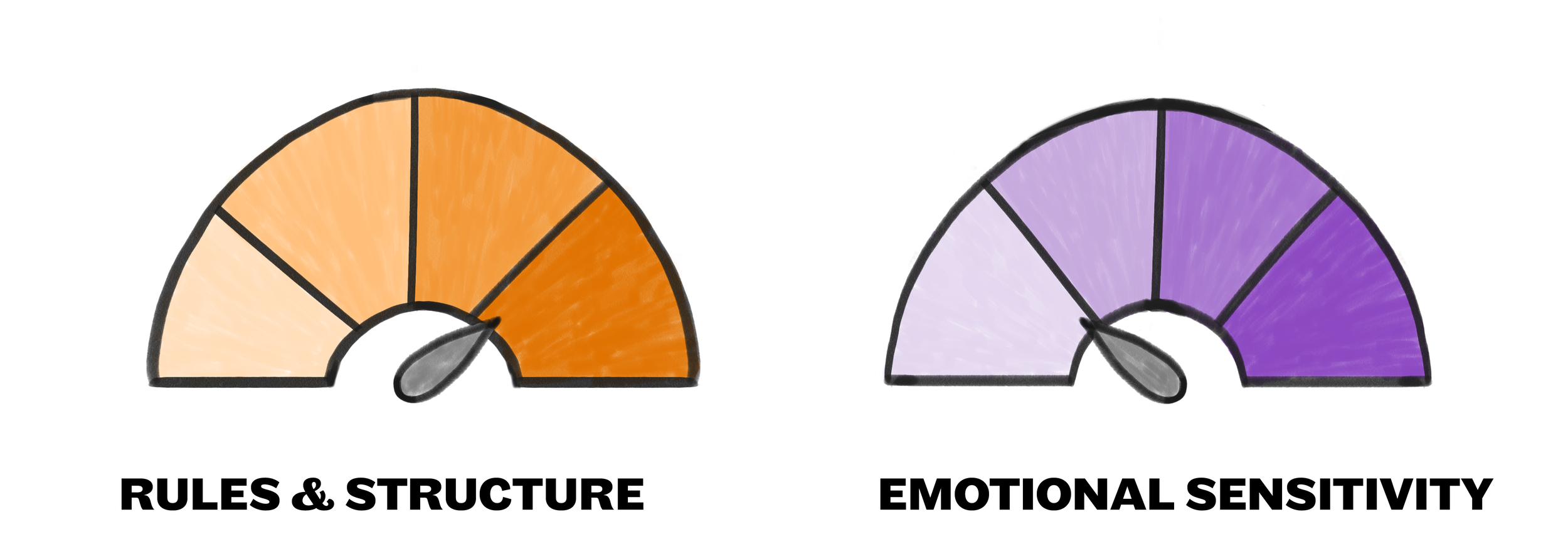Parenting Styles
We are thrilled to have Teen Brain Trust** join us to give us insights into adolescent development and the impact of parenting styles on academic performance.
Remember, almost no one fits 100% into any of these categories. Most parents fluctuate between different styles in different areas of their parenting and/or during different times of their child’s life. Read more about the different styles below, and take Teen Brain Trust’s quiz to find out what style best matches yours.
Characterized by: high levels of rules and structure and low emotional sensitivity to the child.
Yields positive academic results?
Authoritarian parenting can yield positive results when it comes to academic achievement, though it’s important to note that those results are often tempered with unwanted side effects (like low self-esteem).
Children whose parents tend to be Authoritarian: goal-oriented, obedient, and perform well with a lot of structure, but they may have difficulty self-motivating once they are off on their own in college or the workplace.
Characterized by: high levels of rules and structure and high emotional sensitivity to the child.
Yields positive academic results?
Authoritative parenting has the highest overall success rate worldwide. Authoritative parenting uses positive reinforcement rather than punishment to motivate children. As a result, kids make good choices even without parental supervision.
Children whose parents tend to be Authoritative: positive, self-motivated and successful.
Characterized by: low levels of rules and structure and high emotional sensitivity to the child.
Yields positive academic results?
It’s a mix! Children of permissive parents are largely free to make their own decisions and set their own goals. Therefore, some kids raised in this environment thrive academically while others fall behind.
Children whose parents tend to be permissive: creative and confident but not always comfortable in structured environments.
Characterized by: low levels of rules and structure and low emotional sensitivity to the child.
Yields positive academic results?
Out of all the parenting styles, children of uninvolved parents have the worst developmental outcomes. With no emotional support or structure at home, kids tend to display poor academic performance.
Children whose parents tend to be uninvolved: They’re also more likely to have low self-esteem, form unhealthy social bonds, engage in self-destructive behavior, and report higher levels of anxiety and depression.
If you’re taking the time to read this, chances are you’re not an uninvolved parent by nature, but it is possible to unintentionally exhibit some uninvolved habits, especially when life and work get hectic.
In fact, becoming more permissive when kids reach adolescence can have many positive outcomes. Allowing older kids to set their own goals and have a hand in creating their own rules and structure helps them learn how to problem-solve, motivate themselves, and cope with setbacks.
When your child is no longer living under your roof, what habits will stick with them in college or the workplace? Subtly tweaking your parenting style can make all the difference.
**Who is Teen Brain Trust?
Teen Brain Trust is a resource for parents of teens. We offer online courses, community resources, and live expert-led workshops that teach parents practical tools to support and enable their teens' healthy development. Why? The American Psychological Association, the CDC, & World Health Organization all recommend that parents gain a working knowledge of their kids' development in order to best support their learning and growth. Neuroscience shows us that adolescence is a unique phase of development ripe with opportunity. Teen Brain Trust gives parents evidence-based tools and techniques to help their teens take advantage of those opportunities.














